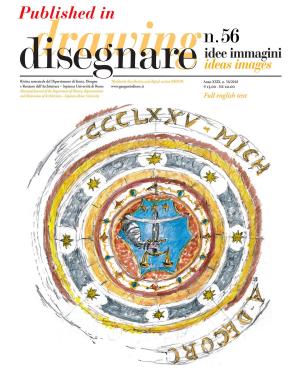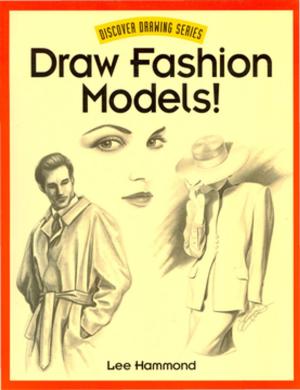Between Two Lines
A Memoir
Biography & Memoir, Artists, Architects & Photographers, Nonfiction, Art & Architecture| Author: | Gerald Thomas | ISBN: | 9780998321516 |
| Publisher: | Storm and Flash Day Books | Publication: | November 21, 2016 |
| Imprint: | Storm and Flash Day Books | Language: | English |
| Author: | Gerald Thomas |
| ISBN: | 9780998321516 |
| Publisher: | Storm and Flash Day Books |
| Publication: | November 21, 2016 |
| Imprint: | Storm and Flash Day Books |
| Language: | English |
Gerald Thomas is the perfect mixture of a streetwise kid and a highbrow intellectual, a blend that is bound to create something intense. From the cheerful samba sessions in the slums of Rio de Janeiro, which he attended enthusiastically, to the cerebral opera houses in Germany, which he scandalized with his exceptional performances, everything in the life of this enfant terrible sounds like a human parade you want to join immediately, a Dionysian feast to which even Apollo would plead for admittance. Whether the focus falls on the dark or enlightened aspects, the horrific or pleasurable dimensions, his memoirs—finally out in book form—are an irresistible read, a page-turner in fact. Born into a Holocaust refugee family and an offspring of the counterculture movement, Thomas, writing at 62, claims to be in tatters. But it’s precisely his caustic yet hopeful view from which he distills an entire celebration of life, of existence as a constant experiment, of the avant-garde as a viable, redemptive utopia. As he notes, “I see the world in a comic way. A sardonic comedy, of errors or not, that destroys all that lives and rebuilds its optic from the bottom of the ashes.” He turns those ashes into his uncomfortable, warped humorous remarks. As when, for instance, he found himself at a press conference facing German journalists and, while holding an ashtray filled to the rim in one hand and a Gitanes cigarette in the other, asked to the bewilderment of all, “Any objection if my Jewish family joins me?” But Gerald does not rely solely on his catastrophic dark humor. Mainly, this person—with his signature long, flowing, curly hair—is a die-hard humanitarian. For six years of his early life in London, he worked as a volunteer at Amnesty International, defending Brazilian political prisoners and getting openly involved in countless campaigns for freedom. No wonder Muhammad Ali is his number one hero. Thomas has had somewhat of a charmed life. For six years, he sat in a Parisian café with Samuel Beckett, dated Hélio Oiticica, washed Jean Genet’s feet, collaborated with and became a close friend to Philip Glass as they created operas, illustrated the Op-Ed page of The New York Times, and dedicated 80 percent of his time and soul to the off-off-Broadway theater scene under the wings of La MaMa’s Ellen Stewart. Not to mention, of course, the tediousness and excitement of driving ambulances in London and a relentless frisson toward the intriguing women with whom he got involved. Phew! Invariably provocative, restlessly lucid, Gerald manipulates these pages as if they are actors on a stage and so grabs the reader by the throat. His memoirs are a captivating chaos, a collection of travestied bedtime stories that may not be the standard now but may one day set the norm, just as his theater has done and keeps on doing. If the life of a man is, as Thomas Hobbes once put it, solitary, poor, nasty, brutish, and short, Gerald Thomas lies Between Two Lines to prove precisely the opposite.
Gerald Thomas is the perfect mixture of a streetwise kid and a highbrow intellectual, a blend that is bound to create something intense. From the cheerful samba sessions in the slums of Rio de Janeiro, which he attended enthusiastically, to the cerebral opera houses in Germany, which he scandalized with his exceptional performances, everything in the life of this enfant terrible sounds like a human parade you want to join immediately, a Dionysian feast to which even Apollo would plead for admittance. Whether the focus falls on the dark or enlightened aspects, the horrific or pleasurable dimensions, his memoirs—finally out in book form—are an irresistible read, a page-turner in fact. Born into a Holocaust refugee family and an offspring of the counterculture movement, Thomas, writing at 62, claims to be in tatters. But it’s precisely his caustic yet hopeful view from which he distills an entire celebration of life, of existence as a constant experiment, of the avant-garde as a viable, redemptive utopia. As he notes, “I see the world in a comic way. A sardonic comedy, of errors or not, that destroys all that lives and rebuilds its optic from the bottom of the ashes.” He turns those ashes into his uncomfortable, warped humorous remarks. As when, for instance, he found himself at a press conference facing German journalists and, while holding an ashtray filled to the rim in one hand and a Gitanes cigarette in the other, asked to the bewilderment of all, “Any objection if my Jewish family joins me?” But Gerald does not rely solely on his catastrophic dark humor. Mainly, this person—with his signature long, flowing, curly hair—is a die-hard humanitarian. For six years of his early life in London, he worked as a volunteer at Amnesty International, defending Brazilian political prisoners and getting openly involved in countless campaigns for freedom. No wonder Muhammad Ali is his number one hero. Thomas has had somewhat of a charmed life. For six years, he sat in a Parisian café with Samuel Beckett, dated Hélio Oiticica, washed Jean Genet’s feet, collaborated with and became a close friend to Philip Glass as they created operas, illustrated the Op-Ed page of The New York Times, and dedicated 80 percent of his time and soul to the off-off-Broadway theater scene under the wings of La MaMa’s Ellen Stewart. Not to mention, of course, the tediousness and excitement of driving ambulances in London and a relentless frisson toward the intriguing women with whom he got involved. Phew! Invariably provocative, restlessly lucid, Gerald manipulates these pages as if they are actors on a stage and so grabs the reader by the throat. His memoirs are a captivating chaos, a collection of travestied bedtime stories that may not be the standard now but may one day set the norm, just as his theater has done and keeps on doing. If the life of a man is, as Thomas Hobbes once put it, solitary, poor, nasty, brutish, and short, Gerald Thomas lies Between Two Lines to prove precisely the opposite.















